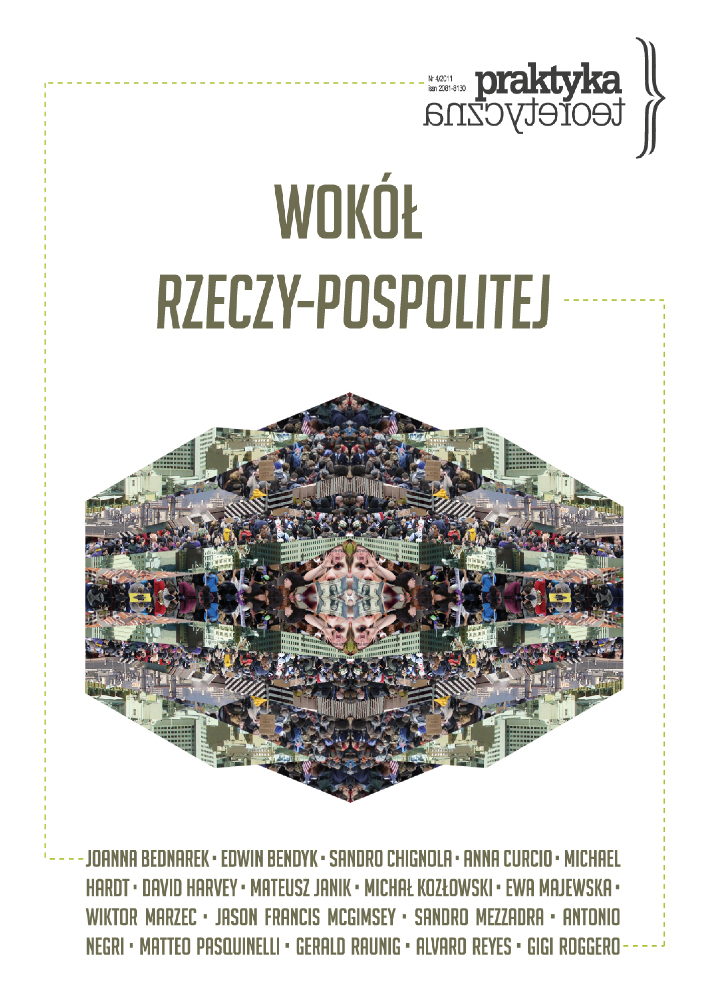Abstract
This essay explores how racialized and gendered subjectivities might produce a common space of social cooperation that can break down the capitalist hierarchization of society. It analyzes both the capitalistic valorization of difference and the production of resistant and militant subjectivities that exceed and overturn capitalistic segmentation and dispossession. Within this framework I consider the production of the common through praxis and mode of organization, bringing to light the necessity for heterolingual translation of difference in order to interrupt the homogeneity of the capitalist language of value. The aim of this article is twofold. On the one hand, there is the need to better understand the present time and its violent contradictions. On the other, there is the necessity to bring to the fore race and gender differences in order to neutralize the social valence of in-difference and to challenge and transform the current social order.License
“Theoretical Practice” seeks to put into practice the idea of open access to knowledge and broadening the domain of the commons. It serves the development of science, thinking and critical reflection. The journal is published in open-access mode under the CC-BY-NC-SA 4.0 license (detail available here: http://creativecommons.org/licenses/by-nc-sa/4.0/). Articles published in the journal may be freely distributed, stored, printed and utilized for academic and teaching purposes without restrictions.
They should not be, however, used for any commercial purposes or be reconstructed into derivative creations. Access to the journal may not be limited or offered for a fee by any third party.
Prospective authors are obliged to fill in, sign and send back the publishing contract compliant with the CC licencing. [PL.pdf, PL.doc, EN.pdf,EN.doc].
According to this contract, authors grant the journal a non-exclusive right to publish their work under the creative commons license (CC-BY-NC-SA 4.0) without any financial obligation on both sides of the contract.
Before submission authors should make sure that derivative materials they use are not protected by copyright preventing their non-commercial publication. Authors are responsible for any respective copyright violations.
